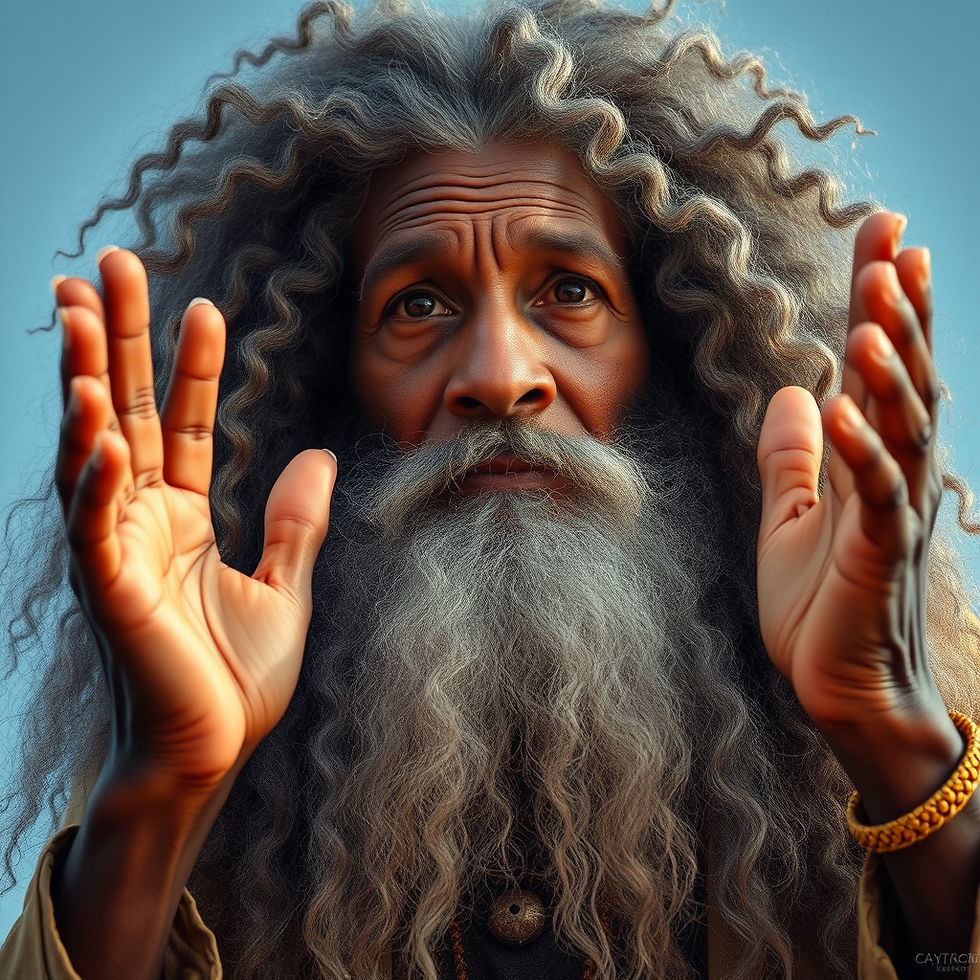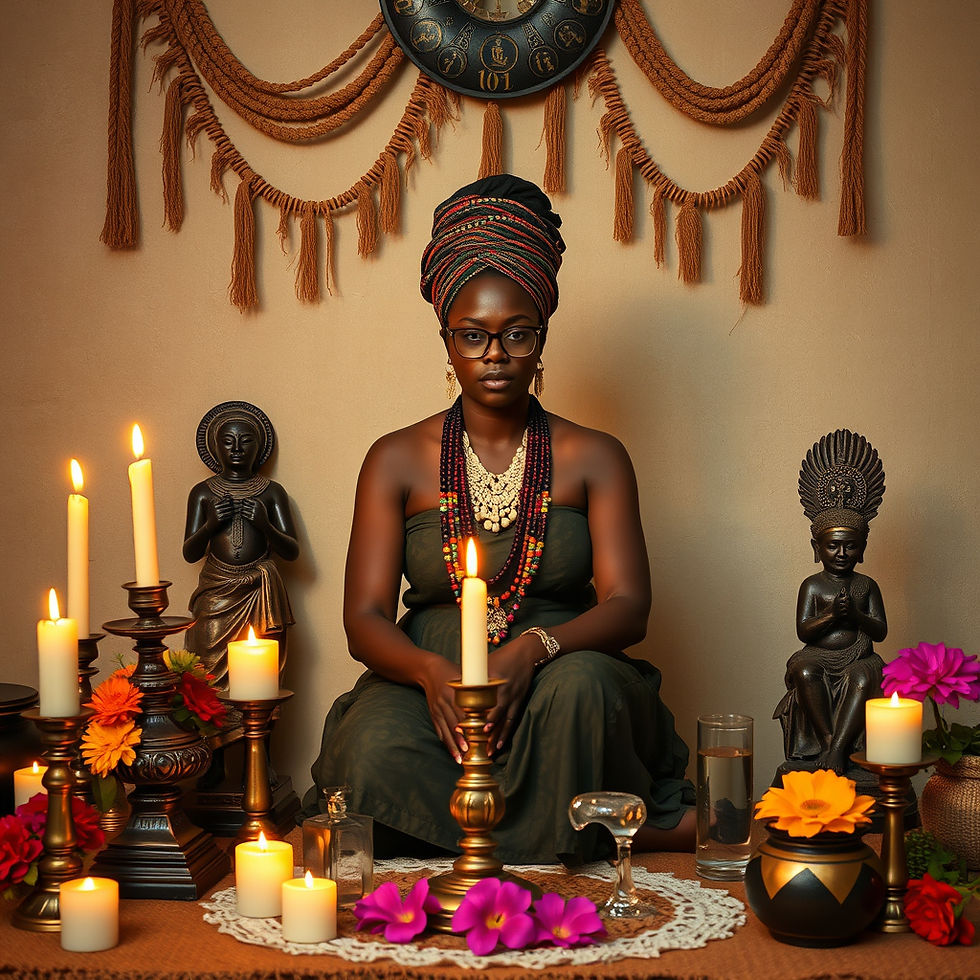Racial Trauma & Cultural Erasure in Spiritual Practices
- Rhonda
- Jul 20
- 2 min read
Reclaiming What Was Always Ours

In the rise of modern spirituality, there's a growing trend that often goes unspoken: the misappropriation of Black and Indigenous spiritual practices. Sacred rituals, symbols, and traditions—many rooted in the African diaspora—are frequently stripped of their origin, sold for aesthetic, and used without context, reverence, or understanding. This isn't just about copying culture. It's about erasing the roots while profiting from the fruit.
For BIPOC, especially those of African descent, this spiritual erasure is deeply tied to generational trauma. During colonization and enslavement, our ancestral ways of connecting to Spirit—be it through drumming, dance, divination, herbal medicine, or ancestral veneration—were demonized, banned, or violently stripped away. We were told our practices were “evil” or “pagan,” while the colonizers enforced their version of divinity through Christian doctrine—often with a God who resembled the oppressor, not the liberated soul.
Yet, even within that trauma, we adapted. Many African spiritual systems survived beneath the surface. The Yoruba tradition, for example, found refuge in syncretism—hiding in plain sight within Catholic saints and Christian customs. Orishas like Oshun and

Shango were hidden beneath names like Our Lady of Charity and Saint Barbara. These creative forms of spiritual survival allowed our ancestors to keep their connection to Source alive, even under threat of death.
Today, Yoruba spirituality and other African systems are rising back to the surface, being reclaimed by those who carry their bloodlines. But as they become more visible, they also become more vulnerable to being misused. It's not uncommon now to see Orisha names in hashtags, rituals shared without proper training, or sacred practices turned into trendy content—often without honoring the traditions, elders, or communities they come from.
This isn’t about gatekeeping—it’s about guardianship.When traditions are pulled from the people without respect, it reinforces a legacy of spiritual colonization. It continues the cycle of erasing the very people who birthed these healing systems, while whitewashing their power and packaging it for profit.
Meanwhile, many BIPOC still struggle internally—raised Christian, told their ancestral ways were demonic, and now trying to reconcile the beauty of their roots with the shame they were taught. This spiritual dissonance is a wound that needs healing.

So what do we do?
We reclaim. We educate. We honor.
We name the pain of cultural erasure and choose to heal it by reconnecting with what was taken. That means learning from traditional elders, respecting the protocols, and knowing that not every sacred practice is meant to be consumed by everyone.
To be spiritual is not to be trendy.
To be spiritual is to be rooted. And for many of us, that means going back to the altars our grandmothers prayed at before someone told her to hide it.
For a personalized healing session to connect with your lineage and cultural spirits, book a one-on-one Reiki session in person or virtual today.
.png)




Comments